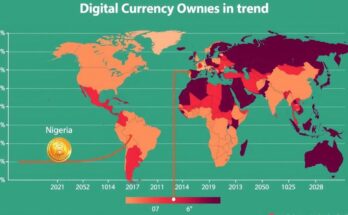President Biden’s upcoming visit to Angola will spotlight the Lobito Corridor, a $5 billion infrastructure project that connects Angola’s port to the DRC and Zambia, aiming to counter China’s influence in Africa. This initiative will enhance access to key mineral resources, reduce transportation costs, and promote economic growth, while engaging local communities in decision-making processes to uphold social and environmental standards.
In early December, U.S. President Joe Biden will visit Angola to highlight the Lobito Corridor, a significant infrastructure project designed to enhance supply chain security in Africa and counter China’s influence in global development. This $5 billion initiative aims to refurbish and expand the 1,300-kilometer Benguela railway, connecting the port of Lobito to the Democratic Republic of Congo and, in later phases, Zambia. Launched in September 2023, the corridor is primarily financed through the Partnership for Global Infrastructure and Investment, a Biden-led initiative formed by the G7 in response to China’s Belt and Road Initiative.
The Lobito Corridor will facilitate access to vital minerals essential for electric vehicle manufacturing, such as cobalt and copper. A substantial portion of the Democratic Republic of Congo’s mining operations is under Chinese control, with 80 percent of its copper mines owned by Chinese entities. Helaina Matza, acting special coordinator for the PGI, indicated that the project would reduce transportation costs, open opportunities for agricultural land, and promote climate-resilient economic growth.
The collaboration involves key partnerships with European nations, while past U.S. efforts included loan commitments totaling $17 billion to Angola from China, mainly for infrastructure projects. In contrast, China’s influence in Africa has expanded significantly since the introduction of the Belt and Road Initiative in 2013. Between 2013 and 2021, China invested $679 billion in worldwide infrastructure, while the United States allocated only $76 billion. To bridge this gap, the PGI has set an ambitious goal of raising $600 billion by 2027.
Analysts have noted that while Lobito is a pivotal project, other significant initiatives under the PGI appear limited. Frances Brown from the National Security Council highlighted that the Biden administration has so far fulfilled over 80 percent of its $55 billion investment pledge for Africa, although much of this funding aligns with existing programs. The Lobito Corridor thus represents a tangible commitment of U.S. resources in Africa, particularly amid widespread Chinese financing that permeates the continent.
Activists have expressed concerns regarding social and environmental standards associated with such infrastructure projects, demanding the inclusion of civil society groups in the decision-making processes. In light of the changing political landscape, there are uncertainties concerning U.S. commitment to initiatives like Lobito following the upcoming election.
Despite these concerns, initiatives such as Prosper Africa and the Blue Dot Network launched during the previous administration underscore the continuity of U.S. engagement in African development, suggesting that the competition for infrastructure financing between the U.S. and China may provide developing nations with greater leverage. Overall, the Lobito Corridor’s long-term success will depend on sustaining investment, engaging local communities, and ensuring environmentally sound practices.
The Lobito Corridor project symbolizes a strategic move by the Biden administration to enhance infrastructure in African nations while simultaneously reducing China’s influence in the region. This corridor is part of a broader commitment to invest in global infrastructure through the Partnership for Global Infrastructure and Investment, which seeks to establish transparent and socially responsible investment practices in contrast to China’s Belt and Road Initiative. As China has rapidly expanded its financing capabilities in Africa, the U.S. is striving to rebuild its presence and restore partnerships through visible infrastructure projects that align with local development needs.
The Lobito Corridor serves as a critical component of U.S. efforts to strengthen infrastructure within Africa and reduce reliance on Chinese funding. This initiative not only aims to enhance supply chains for essential minerals but also reflects a commitment to sustainable and community-focused investments. The success of the Lobito Corridor will rely on effective implementation and the active involvement of local stakeholders to ensure that it meets environmental and social standards, thereby setting a precedent for future U.S. infrastructure projects in Africa.
Original Source: www.voanews.com




